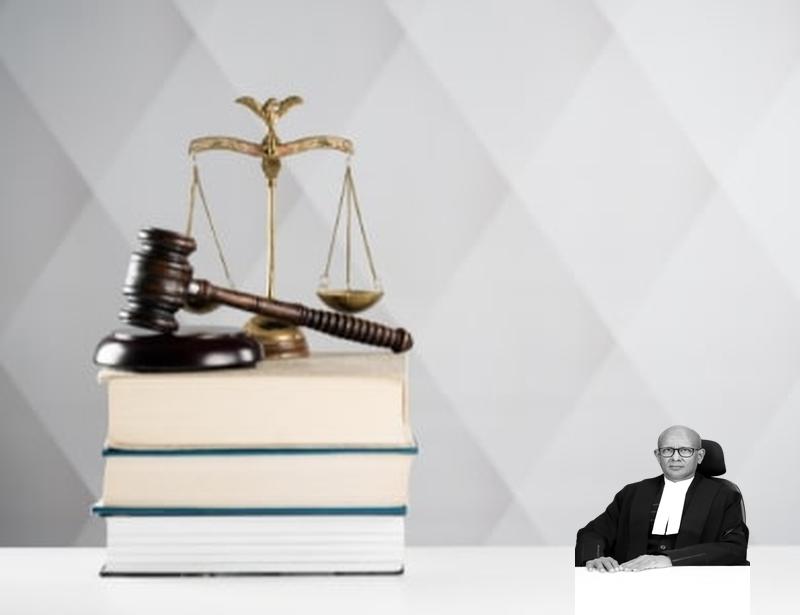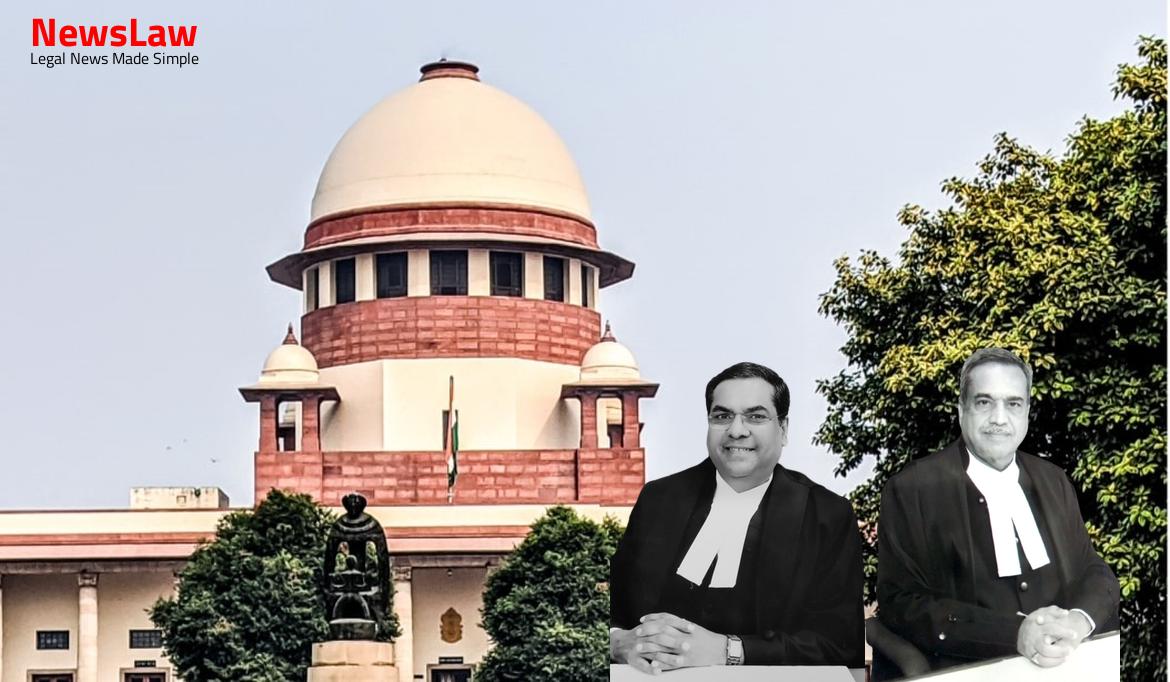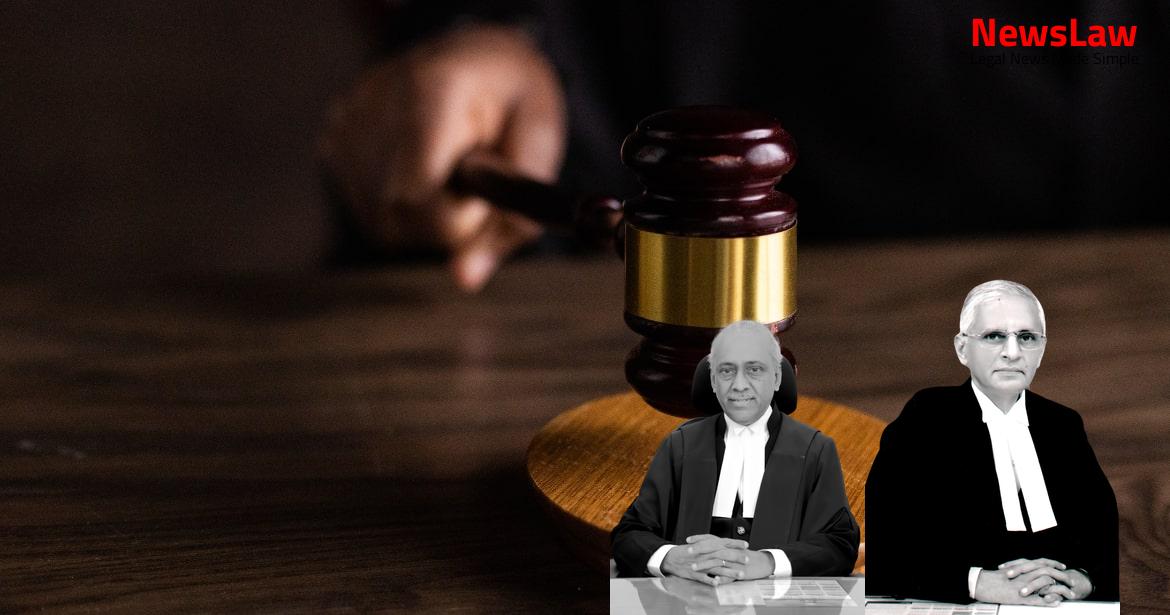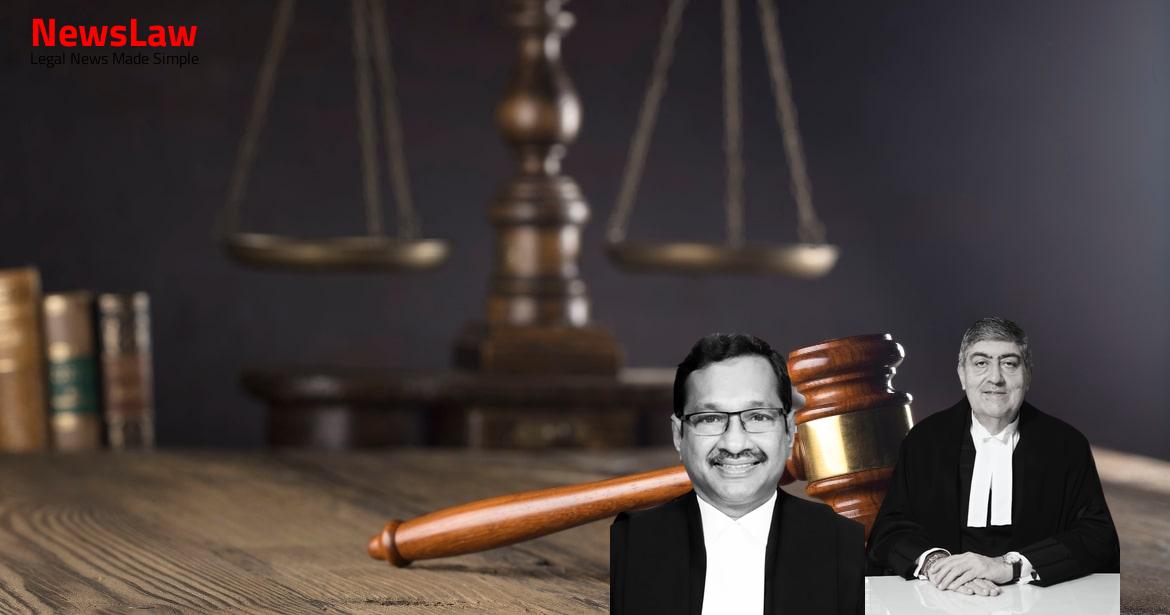Bhawna preferred First Appeal
No 1876 of 2019 against the said divorce decree and the same is stated to be pending consideration before the Madhya Pradesh High Court. All three appellants secured anticipatory bail on 06.03.2013 in relation 3 to FIR No 56 dated 09.02.2013 from the learned Additional Sessions Judge, Indore, vide Bail Application No 634 of 2013. No 6585 of 2013 laying a challenge to the charge sheet and the proceedings in Criminal Case No 11954 of 2014.
Bhawna went on to state that her husband and mother-in-law had complaints with her and her parents on the issue of dowry and that they started harassing her mentally even on minor issues and started using wrong and intolerable words for her parents, brothers and sister. She further stated that her mother-in-law’s house at Indore was like a paying guest accommodation, where one or the other student was always living, and there was no room for her to stay. She further stated that upon her many requests, Nimish came to the marriage of her brother on 17.06.2012, but again asked her about the arrangement for money.
As regards her in-laws, she said that her mother-in-law, Kusum Lata, and brothers-in-law, Abhishek and Sourabh, used to harass her mentally and physically to bring.2 lakhs in cash, a car and jewellery in dowry from her parents and due to this, her parents fell ill and were being treated. He said that whenever Bhawna came to meet them, she used to tell him and all the neighbours that her husband, Nimish, mother-in-law, Kusum Lata, and brothers-in-law, Abhishek and Sourabh, used to tell her that her father had given nothing in dowry and when she went to her parental home, she should 7 bring.2 lakhs in cash, a car and gold jewellery.
Nimish made written representations to the police authorities at Narsinghpur on 09.09.2012 and 17.11.2012 complaining of 8 intimidation by and at the behest of Bhawna. Prior thereto, an anonymous complaint was made to the Chief Justice, Madhya Pradesh High Court, against Abhishek, making scandalous allegations to the effect that he was undeserving of judicial office. It is well settled that the High Court would continue to have the power to entertain and act upon a petition filed under Section 482 Cr.P.C.
It was further observed that while examining the FIR/complaint, quashing of which is sought, the Court cannot embark upon an enquiry as to the reliability or genuineness or otherwise of the allegations 10 made therein, but if the Court thinks fit, regard being had to the parameters of quashing and the self-restraint imposed by law, and more particularly, the parameters laid down by this Court in R.P. State of Bihar and others [(2022) 6 SCC 599], this Court had occasion to deal with a similar situation where the High Court had refused to quash a FIR registered for various offences, including Section 498A IPC.
This Court observed that false implications by way of general omnibus allegations made in the course of matrimonial disputes, if left unchecked, would result in 11 misuse of the process of law.
Therein, it was observed that when an accused comes before the High Court, invoking either the inherent power under Section 482 Cr.P.C. In the backdrop of the interpretation of the various relevant provisions of the Code under Chapter XIV and of the principles of law enunciated by this Court in a series of decisions relating to the exercise of the extraordinary power under Article 226 or the inherent powers under Section 482 of the Code which we have extracted and reproduced above, we give the following categories of cases by way of illustration wherein such power could be exercised either to prevent abuse of the process of any court or otherwise to secure the ends of justice, though it may not be possible to lay down any precise, clearly defined and sufficiently channelised and inflexible guidelines or rigid formulae and to give an exhaustive list of myriad kinds of cases wherein such power should be exercised.
(2) Where the allegations in the first information report and other materials, if any, accompanying the FIR do not disclose a cognizable offence, justifying an investigation by police officers under Section 156(1) of the Code except under an order of a Magistrate within the purview of Section 155(2) of the Code. (7) Where a criminal proceeding is manifestly attended with mala fide and/or where the proceeding is maliciously instituted with an ulterior motive for wreaking vengeance on the accused and with a view to spite him due to private and personal grudge.’ 18.
The most significant aspect to be taken note of presently is that Bhawna admittedly parted ways with her matrimonial home and her in-laws in 15 February, 2009, be it voluntarily or otherwise, but she did not choose to make a complaint against them in relation to dowry harassment till the year 2013. Significantly, Bhawna got married to Nimish on 02.07.2007 at Indore and went to Mumbai with him on 08.07.2007. We may also note that Bhawna herself claimed that Nimish came to her brother’s wedding in 2012, but she has no details to offer with regard to any harassment for dowry being meted out to her by her mother-in-law and her brothers-in-law after 2009. Most damaging to Bhawna’s case is the fact that she did nothing whatsoever after leaving her matrimonial home in February, 2009, and filed a complaint in the year 2013 alleging dowry harassment, just before her husband instituted divorce proceedings.
FIR
No 56 of 2013 and Criminal Case
No 11954 of 2014 pending on the file of the learned Judicial Magistrate First Class, Indore, shall stand quashed insofar as the appellants, Kusum Lata, Abhishek Gour and Sourabh Gour, are concerned.
Case Title: ABHISHEK Vs. THE STATE OF MADHYA PRADESH
Case Number: Crl.A. No.-001457-001457 / 2015



